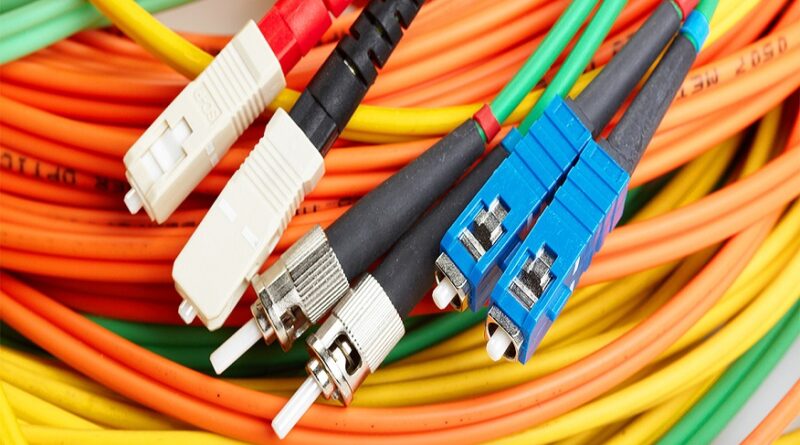5 Compelling Reasons to Choose Fiber Optic Cable Installation
In the ever-evolving landscape of modern technology, businesses and individuals are constantly seeking ways to enhance their communication and data transmission capabilities. Amidst this pursuit, fiber optic cable installation has emerged as a transformative solution. Fiber optics provide a better and more effective method of delivering data, phone, and video than conventional copper lines. In this post, you’ll look at five convincing arguments for why choosing fiber optic cable installation is a smart move in the society we live in today.
1. Unmatched Speed and Bandwidth
Fiber optic cable installation stands out with its unmatched speed and bandwidth capacity, making it a superior choice compared to traditional copper cables. Unlike copper cables, which suffer from signal degradation due to electrical resistance, fiber optics utilize light pulses for data transmission, resulting in exceptionally high data transfer rates. These speeds far surpass the capabilities of copper cables.
Fiber optics offers symmetrical upload and download speeds to both enterprises and consumers, making it perfect for real-time data transfer applications like video conferencing, and cloud computing, along with online gaming. Fiber optic cables are capable of supporting rates of up to 100 Gbps, if not greater, providing efficient and bottleneck-free data transmission. The extraordinary speed and bandwidth of fiber optics meet the demands of modern communication needs, facilitating seamless connectivity and data transfer at unparalleled rates.
This enhanced performance enables businesses to handle data-intensive tasks efficiently, boosting productivity and providing a competitive edge. Moreover, the rapid and reliable data transmission offered by fiber optics enhances user experiences for consumers, ensuring smooth streaming, faster downloads, and improved overall internet performance. In conclusion, the unmatched speed and bandwidth capacity of fiber optic cable installations make them the go-to choice for businesses and individuals seeking cutting-edge communication solutions with superior performance and efficiency.
2. Greater Distance Coverage
Fiber optic cable installation offers a significant advantage in greater distance coverage due to its ability to maintain signal strength over extended distances. Unlike copper cables, which suffer from signal attenuation and degrade data transmission quality in long-distance installations, fiber optics ensure consistent signal strength even over distances of several kilometers, depending on the type of fiber used.
This feature makes fiber optic cables well-suited for connecting geographically dispersed locations in wide area networks (WANs) or metropolitan area networks (MANs). By utilizing fiber optics, organizations can establish reliable and high-speed connections between distant sites without worrying about data loss or deterioration of performance. Additionally, the reduced need for signal repeaters in fiber optic networks leads to lower maintenance costs and improved overall network reliability.
Overall, the ability of fiber optic cables to maintain signal strength over greater distances enhances their practicality in establishing efficient and robust communication infrastructures, making them the preferred choice for businesses and institutions seeking reliable long-distance data transmission solutions.
3. Enhanced Security and Immunity to Interference
A fiber optic cable company offers enhanced security and immunity to interference, making it an ideal choice for protecting sensitive data in today’s interconnected world. Contrary to copper connections, which produce electromagnetic signals and are susceptible to radio frequency interference (RFI) and electromagnetic interference (EMI), fiber optics are unaffected by these outside factors. This immunity results from a fact that fiber optic connections effectively eliminate the possibility of EMI and RFI assaults by transmitting data using light pulses rather than electrical signals.
Additionally, fiber optic connections are extremely secure against illegal access due to their physical characteristics. Compared to copper connections, tapping into a fiber optic cable is substantially more difficult, and any effort to do so is more likely to be discovered, enhancing the possibility of cyber attacks. Because of this, organizations that handle sensitive data, including financial institutions and governmental organizations, rely on fiber optic installations to protect their vital data from interception and illegal access.
4. Enhanced Reliability and Durability
Fiber optic cables offer enhanced reliability and durability, setting them apart from traditional copper cables. Copper cables are prone to corrosion, moisture, and environmental factors that can degrade signal quality over time. In contrast, fiber optic cables are highly resistant to these factors, ensuring consistent and reliable performance even in challenging conditions.
The durability of fiber optics extends to their resistance against physical damage. They are less likely to experience downtime due to maintenance issues or cable damage, reducing the risk of communication disruptions for businesses. Further adding to their improved dependability, fiber optic cables are less likely to suffer inadvertent harm from surrounding electrical lines, lightning strikes, or power surges.
Fiber optics’ inborn characteristics, such as their non-conductiveness, also offer further defense against possible risks and electrical interference. This increases the safety and dependability of fiber optic systems, especially in settings with a high prevalence of electrical disturbances. Additionally, fiber optic cables have a far longer lifespan than copper cables do. Fiber optic networks may last up to many decades with appropriate installation and upkeep, providing a long-term and affordable communication solution for corporations and organizations.
5. Future-Proof Investment
Installing fiber optic cable is a choice that offers long-term gains and is a future-proof investment. Having a solid and scalable communication infrastructure is essential given the quick development of technology and the growing need for high-speed data transmission.
Fiber optic networks have the innate ability to change with new technologies without requiring significant modifications or replacements. As bandwidth requirements rise as well as new data-intensive applications emerge, fiber optics will continue to lead communication technology, providing businesses with a stable and efficient platform to meet future problems.
Because of their flexibility, fiber optics can handle a wide range of applications, including cloud computing, and virtual reality, as well as the Internet of Things (IoT), all of which are expected to gain in popularity over time. Additionally, fiber optic cables are useful for tying together big, scattered networks since they can carry data over considerably greater distances with less signal deterioration.
Conclusion
A fiber optic cabling solutions provider offers numerous advantages that outweigh the limitations of traditional copper cables. The unmatched speed, bandwidth capacity, and immunity to interference make fiber optics an ideal choice for businesses seeking reliable and secure data transmission. Moreover, the ability to cover greater distances and the inherent durability of fiber optic cables further solidify their place as a future-proof investment.

